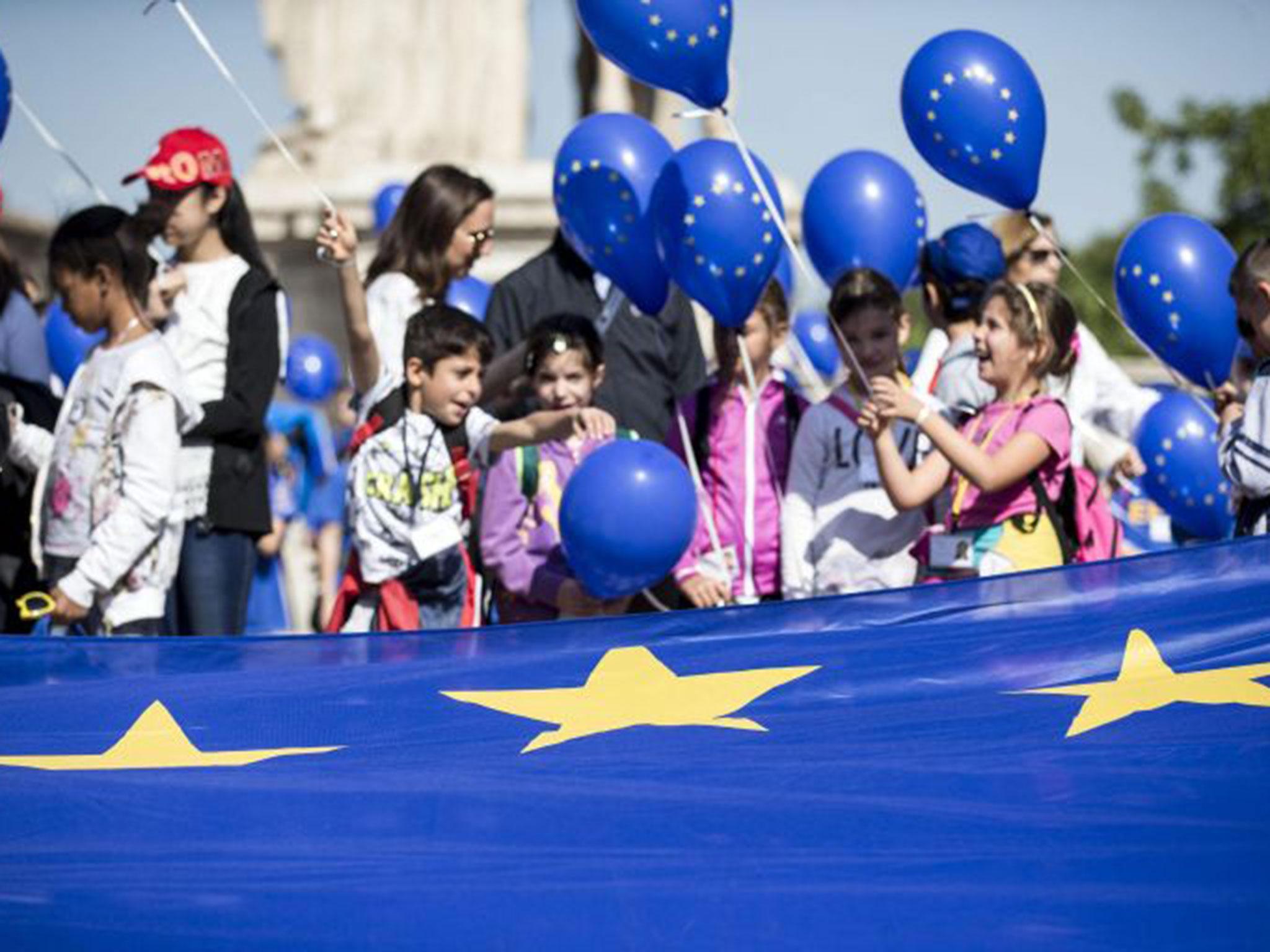The xenophobic jokes Europeans say about each other
'Laughing together means there is a friendship there'

Your support helps us to tell the story
From reproductive rights to climate change to Big Tech, The Independent is on the ground when the story is developing. Whether it's investigating the financials of Elon Musk's pro-Trump PAC or producing our latest documentary, 'The A Word', which shines a light on the American women fighting for reproductive rights, we know how important it is to parse out the facts from the messaging.
At such a critical moment in US history, we need reporters on the ground. Your donation allows us to keep sending journalists to speak to both sides of the story.
The Independent is trusted by Americans across the entire political spectrum. And unlike many other quality news outlets, we choose not to lock Americans out of our reporting and analysis with paywalls. We believe quality journalism should be available to everyone, paid for by those who can afford it.
Your support makes all the difference.What’s so funny about Europe? Well, what with the refugee crisis, the Greek debt crisis, half of Britain wanting to leave the EU and Ukraine being at war... not a lot at the moment.
One man, however, is determined to alter that perception.
Romain Seignovert, a Brussels-based Frenchman, has released a book documenting the jokes Europeans tell about their neighbours.
De Qui Se Moque-t-On? (Who Do We Make Fun Of?), is a collection of 345 jokes from countries across the continent.
Mr Seignovert, who owns the blog europeisnotdead.com, believes much of the continent’s shared sense of humour has been lost in the intensely political context in which Europe is most often discussed in these days. However, on Europe Day, he tells The Independent humour is a universal characteristic which is best shared.
“It’s brotherly, it’s like teasing,” he says. “It’s a way of getting to know the other.” Mr Seignovert, who has lived in a number of European cities and flat-shares with people of several different European nationalities, believes the jokes are made because people on the continent do care about each other, after all.
The collection of gags, which took three years to collect, often play on national stereotypes, sometimes in a rather harsh sense. But Mr Seignovert insists all the jokes are made in good humour.
“Laughing together means there is a friendship there,” he says. “Otherwise, there would just be indifference. I tried to show we care about our neighbours.”
Along with listing the jokes, Mr Seignovert includes some context on why certain types of jokes are popular in different countries.
For instance, French jokes about the Belgians originate from the 18th century, when Belgian workers were imported to northern France and employed as strike-breakers – much to the chagrin of the French, who have since told jokes about the ‘simple minded’ Belgians:
Why do Belgians have pommes frites, while the Arab world has oil? Because the Belgians got to choose first.
However, the Belgians also struck back against the ‘arrogant’ French:
After God created France, he thought it was the most beautiful country in the world. People were going to get jealous, so to make things fair he decided to create the French.
Much banter between the Nordic countries can be traced to the 1970s, Mr Seignovert says, when a Swedish newspaper asked its readers for jokes about the Norwegians:
Why did the library in Oslo shut down? Someone stole the book
The Norwegians later countered with their own efforts, spawning an fraught exchange between the two countries.
Of course, the Germans can’t be left out of any conversation about European humour. Many jokes are told about them by the Polish, although the origins can perhaps be traced back to less funny reasons:
Have you ever heard about Miss Germany? Me neither…
Despite Mr Seignovert’s obvious admiration for the good-humoured cultural richness of the Europe, he fears it could be harmed if Britain chooses to leave the European Union. “Britain is part of the European family,” he says. “There are many ties between us -- even your Monarchy is from Europe!”
“If Brexit were to happen it would be a sad thing, it would break ties and decrease opportunities for sharing our cultures.”
The Best of the Rest:
The Irish on the (repressed) Brits:
Diplomacy according to Brits: the art of telling people to go to hell in such a way that they ask for directions.
The Portuguese on (disdainful) Spaniards:
- How do you recognize a Spaniard in a library?
- He is the only one to look at a world map of Madrid
The Albanians on the (deviant) Greeks:
- What do you call a Greek with 300 hundred wives?
- A shepherd.
The Estonians on the (introverted) Finns:
- How do you know a Finn is terribly in love with his wife?
- He almost tells her.
The Latvians and Lithuanians on (slow) Estonians:
- I told some Estonian fellows that they’re slow, says a Latvian
- What did they reply? Asks his friend.
- Nothing, but they beat me up the following day…
The Italians on… themselves:
- Why does the Pope always kiss the ground after a flight?
- Only someone who has already travelled with Alitalia will understand.
Join our commenting forum
Join thought-provoking conversations, follow other Independent readers and see their replies
Comments